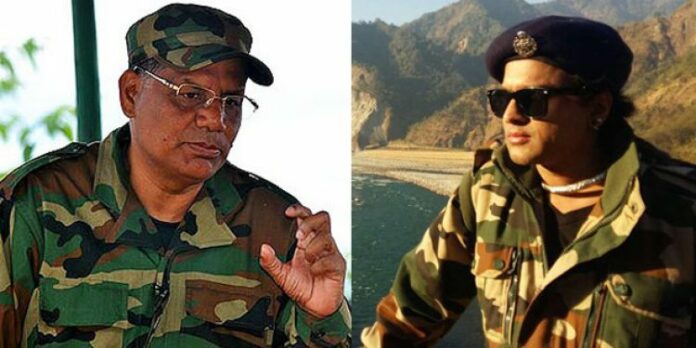Guwahati: A highly unverified video, allegedly featuring the chief of the proscribed insurgent group ULFA-I, Paresh Baruah, has recently surfaced and gone viral across social media platforms, injecting a provocative narrative into the ongoing public grief surrounding the tragic death of iconic Assamese singer Zubeen Garg. Released amid intense public demands for justice, the purported statement by Baruah is poised to elicit strong and potentially volatile reactions, particularly from the singer’s vast and emotionally invested fan following.
The alleged statement navigates several contentious points. Baruah specifically rejects public calls urging the outfit to engage in retaliatory violence against those deemed responsible for Zubeen Garg’s death. He attempts to position ULFA-I above emotional, vigilante justice by stating, “I’m not mad that I will follow someone’s sentimental order, I cannot accept a wrong doing.”
Further, the chief dismisses the widespread public outrage as beneficial only to mainstream political organizations, arguing that “be it BJP, AGP, AJP, Congress every party is same.” This suggests the tragedy and its subsequent public controversy are being co-opted for electoral or factional gain, an apparent effort to deflect from any potential non-state-actor involvement and question the sincerity of the political class.
In the most controversial segment of the alleged video, Baruah casts suspicion upon Zubeen Garg’s family and close associates. He rhetorically questions the delay in transparency, asking: “Why the things are coming out after death… Who is responsible that Syamkanu become close to Zubeen, Zubeen doesn’t have his own conscience, Zubeen’s family don’t have in wit.” The statement escalates this challenge by asserting the singer’s inner circle—described as “educated”—must have been aware of the circumstances while he was alive, implying their complicity, negligence, or failure to intervene: “His family, close ones everyone is educated and knows the thing, why they have not said the thing at that time when he was alive.”
Finally, the alleged statement broadens its scope to a moral critique of contemporary Assamese culture, specifically targeting Bihu festival stages. Baruah laments a perceived moral decline, suggesting the environment is no longer family-friendly due to widespread inebriation: “In today’s time is the situation there where we can take our parents, brother, sister to the Bihu stage festival… maximum of them get drunk.” This links the circumstances surrounding Zubeen Garg’s death to a wider societal and cultural decay, a frequent theme in the insurgent group’s rhetoric.
Should the statement be confirmed as authentic, Zubeen Garg’s fan base, renowned for its fierce loyalty and deep emotional connection to the deceased artist, is expected to be deeply offended and heavily polarized by the ULFA-I chief’s insinuations against the singer’s family and the politicization of their icon’s passing.

